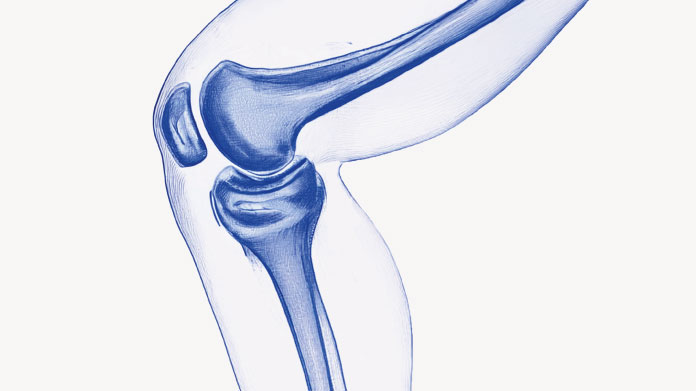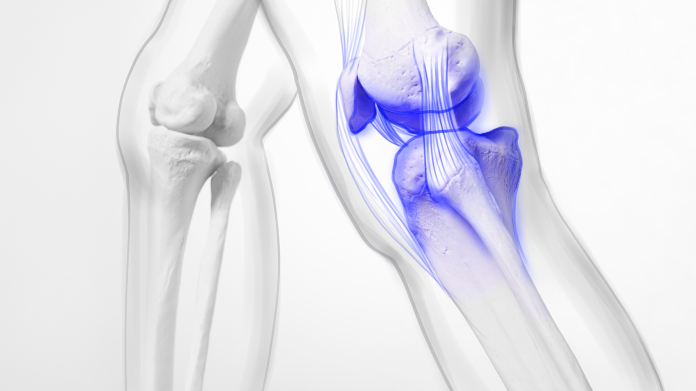4 tips to maintain strong bones
Though we often think of them as tough and resilient, our bones are actually much more fragile than they appear. Read on to find out four ways to ensure your bones stay strong and healthy!

Don’t neglect your calcium intake
Calcium is a critical element for our bones. This mineral salt is essential to bone growth during childhood, and also helps maintain bone mass throughout life. A lack of calcium is also known to increase the risk of bone fractures and osteoporosis, a skeletal disease characterised by significant loss of bone density.
In practice: Daily intake of calcium is recommended for maintaining the resilience of our bones, and for that, we need to consume calcium-rich foods such as dairy products, and take advantage of nutritional supplements. Many such products have been developed to prevent or correct a lack of calcium. Among them is the supplement Calcium Orotate available from the SuperSmart catalogue.
Prevent vitamin D deficiency
Vitamin D is another nutrient important for maintaining strong bones. It is involved in several stages of calcium metabolism: it enables calcium to be absorbed in the gut, helps it embed in the bones and prevents its elimination in the kidneys.
In practice: While vitamin D is therefore just as important as calcium for ensuring that our bones stay strong, deficiency is unfortunately widespread. In fact, the body needs exposure to the sun’s UV rays in order to produce this vitamin: without it, our vitamin D needs must be met through diet, by eating foods such as salmon, sardines and other oily fish. Deficiency can also be prevented or remedied by taking a vitamin D supplement.
Reduce your intake of salt, alcohol and caffeine
In contrast to vitamin D, some molecules are known to disrupt the metabolism of calcium. Among the worst offenders are caffeine and sodium which increase the loss of calcium via urine. Several recent studies have also emphasised the harmful effect of alcohol on the bones. Excessive alcohol intake has been reported to potentially lead to a loss of bone density, weakening the skeleton.
In practice: To maintain bone strength, it’s therefore a good idea to reduce consumption of alcohol, coffee, tea and caffeinated soft drinks. High-salt products should also be avoided, particularly ready meals which often have a high sodium content. Salt can be easily replaced in cooking by herbs and aromatics, some of which – basil and thyme for example – also contain substances beneficial for bone health.
Benefit from advances in science
Bone health is the subject of many scientific studies, with researchers focusing on solutions to preventing and treating osteoporosis. Affecting millions of people, this bone disease has a number of causes and can be treated in various ways: an anti-osteoporosis diet rich in calcium and vitamin D, nutritional supplementation, exercise programs, the use of powerful active principles …
In practice: As a result of scientific advances, it is now possible to benefit from powerful active principles in order to maintain and improve bone density. With scientifically-proven efficacy, some of these substances are now available as dietary supplements. They include the bone-strengthening product Super Bone Formula which draws on the synergistic effects of several molecules: KoACT™, Fruitex-B™, strontium, organic silicon, menaquinone-7, vitamin D3, magnesium…
Keywords
12 Hours
repeat customer
recommended by my doctor. easy to create an account. Discounts and specials are appreciated. packaging and delivery is dependable. Capsules easy to digest. I've had some some capsules and tablets that are broken inside their bottles.
Kokee
5 Days
Order was shipped on time and packaged…Wonderful Jobs!
Order was shipped on time and packaged excellently.
DMHoge
11 Days
great products and prices
great products and prices
Marie
17 Days
Easy to navigate site
Easy to navigate site, had what I was searching for, good price. easy order-check out
James Tucker
23 Days
My skin is clearing up nicely!
Pretty good for my skin so far.
Christian
25 Days
The new packaging is excellent
The new packaging is excellent - finally! No more squashed boxes and torn envelopes.
GORAN
26 Days
Great Product
Great Product
Larry Garrett
30 Days
Quick shipping
Quick shipping; good price. No issues!
Mary McCarty
32 Days
Thr product is very good and is helping…
Thr product is very good and is helping me on my health. Then is always on time
LUGO Luz
34 Days
Buying was fine
Buying was fine. I had problems with the website not recognizing my login info, and had to call to get it fixed. Other than that, everything was good.
David S. Clark
34 Days
Your super maca and super ginseng are…phenomenal
Your super maca and super ginseng are phenomenal supplements that compliment each other when taking them together. Fantastic feeling of well-being and lots of mid day energy without the crash.
Keith Mason
37 Days
I have had amazing results with every…
I have had amazing results with every supplement I've purchased. I am extremely satisfied with this company
kirstin Torres
37 Days
Fine products
Fine products . They are on the leading edge of online supplements. The only issue -so far-is they sometime run out of subscription items.
Jason Argos
40 Days
The ordering process is very user…
The ordering process is very user friendly and the products always come in a timely manner.
CARTER Rhonda
41 Days
The price for Dr
The price for Dr. Pero's AC-11 is reasonable and in line with his views. (my former colleague). Keep it pure.
CAMPBELL Clayton




